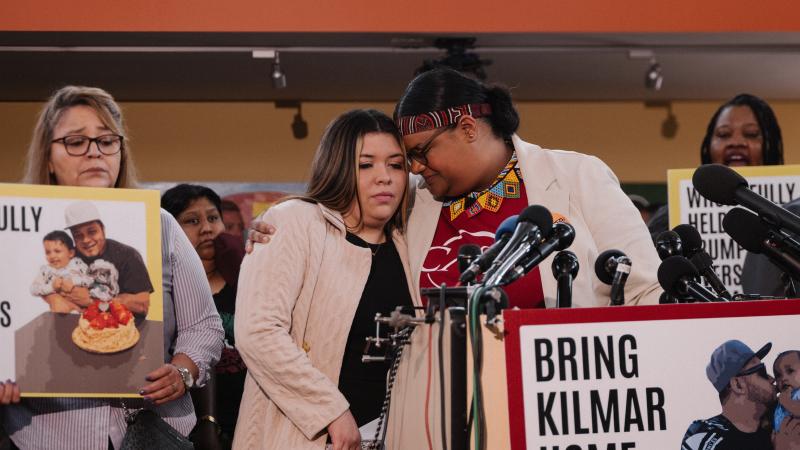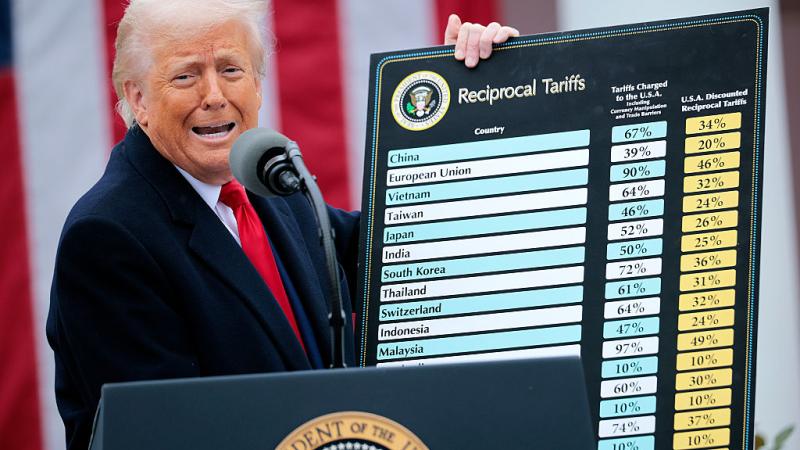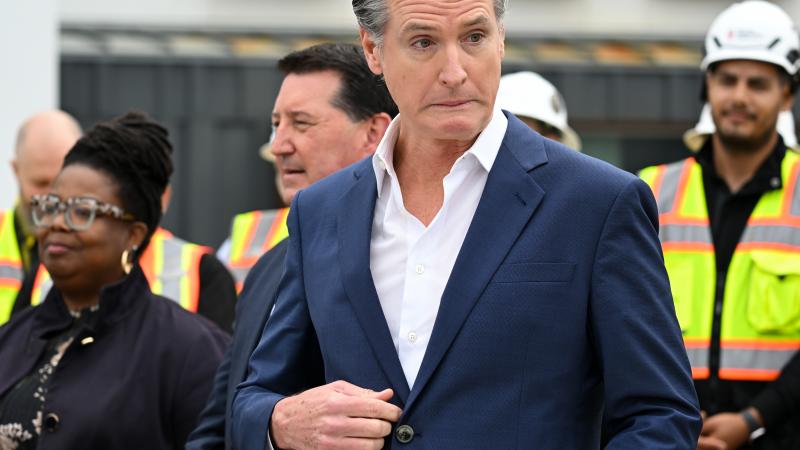Wisconsin election problems pile up as ex-Madison clerk investigated over November election
Both the state capital of Madison and Wisconsin’s largest city, Milwaukee, have experienced election issues ranging from uncounted absentee ballots to a shortage of ballots on Election Day, as officials seek to investigate the respective causes.
Election problems are piling up in Wisconsin cities as the actions of Maribeth Witzel-Behl, a former Madison clerk, are being investigated after her handling of the November election.
The two most populous cities in Wisconsin are under scrutiny over problems that occurred in the last two elections. Both the state capital of Madison and Wisconsin’s largest city, Milwaukee, have experienced election issues ranging from uncounted absentee ballots to a shortage of ballots on Election Day, as officials seek to investigate the respective causes.
Witzel-Behl resigned from her position, which the mayor announced last week, after she failed to count 193 absentee ballots in the November election and didn’t inform the Wisconsin Elections Commission (WEC) until Dec. 18. The results of the election were certified on Nov. 29. The 193 ballots were found in two batches, the first on Nov. 12 and the second on Dec. 3.
The mayor said the missing 193 ballots would not have swayed any election or ballot questions, either in Madison or statewide.
In Witzel-Behl's short resignation letter that she sent to the Madison mayor on April 5th, she wrote that it “has been a pleasure to serve the City for 20 years,” and she wished the mayor, the city clerk's office, and the city of Madison “nothing but the best.”
“On behalf of City of Madison residents, I want to extend my gratitude to Maribeth for her commitment and dedication to public service,” Madison Mayor Satya Rhodes-Conway said in a statement last week. “Maribeth embodies the motto she brought to the Clerk’s Office: ‘We exist to assist.’ I wish her the very best in future endeavors.” Witzel-Behl has not been charged with any wrongdoing.
Uncounted ballots
WEC is currently investigating Witzel-Behl's actions over the uncounted ballots, which occurred after her office had sent duplicate absentee ballots to more than 2,200 voters in September. City officials claimed that the sending of duplicate ballots was "human error," and told voters to destroy one of the ballots and use the other to vote. A total of 10 wards were affected.
The WEC investigation began in January, and Rhodes-Conway suspended Witzel-Behl in March, then started an internal investigation. The findings of the internal probe have yet to be released by the city, after the investigation was suspended when Witzel-Behl resigned.
Last month, four Madison voters whose absentee ballots were not counted filed claims for $175,000 each from the city and Dane County in the first step toward filing a lawsuit.
Elections meeting turns into a donnybrook
WEC met on Thursday over the investigation into Witzel-Behl, but the meeting devolved into a shouting match as a Republican commissioner attempted to bring up election issues in Milwaukee.
GOP Commissioner Bob Spindell said that an “even more serious problem is in the city of Milwaukee” that occurred during the April 1st elections, when seven polling sites ran out of ballots, causing delays. The April elections included the race for the Wisconsin Supreme Court, which had a high turnout for an off-year election.
WEC Chair Ann Jacobs, a Democrat, interrupted Spindell, eventually threatening to kick him out of the meeting for bringing up business that was not on the agenda. “Bob, stop! Stop! Stop! Stop!” Jacobs said as she banged her gavel while Spindell continued, despite her protest. “I am not going to let you keep going, Bob. I’m going to talk over you until you stop. You must stop. You are out of order, and I will eject you from this meeting if you disobey again.”
“You’re going to eject me from the meeting, you’re going to try to muzzle me, is that right?” Spindell responded. He didn’t continue his comments on Milwaukee, saying, “I said what I needed to say.”
Following the meeting, Spindell told reporters that he was pushing for a probe into the ballot shortage, saying it was “very, very bad judgment.” He said the issue is bigger than the uncounted ballots in Madison, but that Jacobs is avoiding an investigation in order to protect Milwaukee’s Democratic election officials. According to the Associated Press, Spindell was one of 10 Republicans who signed certificates in 2020 stating that Donald Trump had won Wisconsin. Democrat Joe Biden actually won the state that year.
Jacobs told reporters that Spindell must stop hijacking meetings for business not on the agenda, and that she doesn’t know what he wants from an investigation. “An investigation needs to have a purpose other than whining, complaining and conspiracy theories,” Jacobs said.
Before the argument began, Jacobs said that she and GOP Commissioner Don Millis had deposed Witzel-Behl and others, which she said resulted in information she believed would be helpful in recommending new best practices to local clerks on absentee ballots.
“I really do think what we’ve learned will help us do a better job on some of that absentee ballot processing,” Jacobs said.
Madison City Attorney Michael Haas is serving as acting clerk as the city searches for a permanent replacement.
Haas previously served as the WEC administrator, after his work for the now-defunct Government Accountability Board. The Republican-led state legislature banned GAB 10 years ago, after the Wisconsin Supreme Court stopped the board's investigation into then-Gov. Scott Walker's (R) campaign.
Counting room intentionally obscured from view
Before the April 1st elections, the election integrity watchdog Fair Elections Wisconsin challenged 4,878 allegedly illegal voter registrations that had cast ballots in the November election in Milwaukee. The grassroots group’s challenges were unsuccessful, however, as the city election commission declined to investigate them.
During the April elections, Milwaukee elections director Paulina Gutierrez blocked observers from seeing multiple rooms in the city’s Central Count, where ballots were being processed by workers on Election Day, according to Wisconsin state Rep. Dave Maxey (R).
“The reason I wanted to get into those rooms is, ‘Why are you covering the windows? Why did you have mail bins stacked in front of the glass and obscuring people’s view?’” Maxey told The Federalist. “If there’s nothing to see, let’s be as transparent as a window.”
Milwaukee Mayor Cavalier Johnson’s (D) communications director, Jeff Fleming, told The Federalist that “[t]here were a couple of rooms that had limited access, the secure ballot room in addition to private offices.”
While observers were banned from those areas, Maxey said he was briefly allowed access to the secure ballot room and one of the back rooms. In the secure ballot room, Maxey said he saw shelves full of blank ballots.
“They had blank ballots pre-printed for many wards, I think every ward. What I saw was shelves,” Maxey said. “On those were non-completed ballots by ward. … As somebody would request an absentee ballot, that’s where they were grabbing them from and mailing them out.”
He says he didn't see anything suspicious while in the room. When ballots were received, workers took them into the room, divided them by ward, and then alphabetized them.
“If the empty ballots or blank ballots and possible compromise of those is what makes that a non-observable area, then alphabetize out in the open,” Maxey said. “There was room to do that.”
Fleming explained how the secure ballot room is used.
“The secure ballot room is where returned absentee ballots are sorted and processed on election day as well as in the days and weeks before they are sent to the floor of the Central Count location where they are actually canvassed,” Fleming told The Federalist. “[O]ur Board of Election Commissioners, including both Republican and Democratic representatives, are allowed to enter those areas and observe as well as election officials to complete their election duties. … [T]he secure ballot room is used to store election materials. The room is locked and under 24-hour surveillance.”
He cited Wisconsin §6.88 and §7.53 (2m), saying the city clerk’s office “must undertake” activities such as sorting before Election Day, whether it uses “a board of absentee ballot canvassers … or whether its absentee ballots are canvassed at a polling place at the ward where the elector resides on election day.” Fleming added the former statute does not require “this sorting and processing be observable to the public.”
“[R]equiring observers access to government offices for weeks prior to an election would unreasonably disrupt election officials in carrying out their required duties,” he said.
The Facts Inside Our Reporter's Notebook
Links
- resigned from her position
- mayor announced
- were found
- mayor said
- resignation letter
- said in a statement
- sent duplicate absentee ballots
- City officials claimed
- WEC investigation
- investigation was suspended
- filed claims
- Bob Spindell said
- seven polling sites
- Jacobs said
- Spindell responded
- Spindell told reporters
- stating that Donald Trump had won Wisconsin
- Jacobs said
- Jacobs said
- serving as acting clerk
- WEC administrator
- banned GAB
- Fair Elections Wisconsin challenged
- blocked observers
- Maxey told The Federalist
- told The Federalist
- Maxey said
- Maxey said
- Fleming told The Federalist
- He cited
- §6.88
- §7.53 (2m)
- he said















